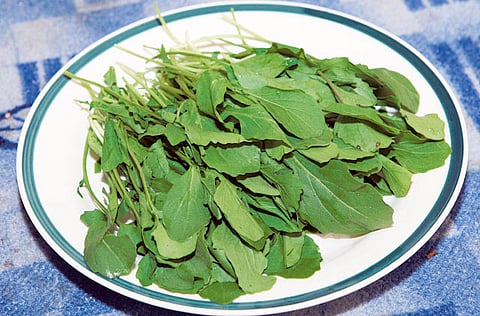You are eating ‘toxic salad greens’
5 years of research shows presence of life-threatening e.coli, salmonella in leaves

Abu Dhabi: Locally grown fresh salad vegetables are contaminated by very dangerous bacteria because of unhygienic farm practices and improper food handling from the farm to the table, academics warned.
They also warned nearly 43 per cent of water wells in the country are contaminated with bacteria that exceed the standard level of safe consumption, even for irrigation of crops.
The warning came on the heels of demands by the Federal National Council to adopt an integrated approach to food safety to ensure a high level of food safety, animal welfare and plant health across the UAE through coherent farm-to-table measures and adequate monitoring.
“If there is a serious epidemic or outbreak of life-threatening gastrointestinal disease we will know the source, namely, the contaminated salad greens we are eating nearly every day,” said Dr Dennis J. Russell, professor of biology, department of biology, chemistry and environmental science at the American University of Sharjah.
Research over the past five years showed the presence of persistent coliform and E. coli contamination sequestered within the leaves of the locally grown popular fresh salad vegetable knows locally as jarjeer (ccientific name rocket/rocca) and other salad greens, Dr Russells told Gulf News.
‘All of the samples of jarjeer were found contaminated with E. coli and 100 per cent of the latest samples were also contaminated with large amounts of Salmonella. Tests of other locally grown greens show they too are contaminated with these bacteria, although to a lesser extent,” Dr Russell said.
Jarjeer in restaurants, he said, is also very dirty with coliform, a thousand times more than a worker who does not wash his hands after going to the toilet.
“Even if the jarjeer looks very clean and healthy it is still harbouring thousands of E. coli and Salmonella per helping (30g or less).
“Jarjeer is heavily contaminated by manure that cannot be washed off and will not be removed even with a rinse in 5 per cent chlorox solution. The bacteria [E. coli] were embedded in the surface tissues of the leaves and thus escaped efforts to clean them. When the salad greens are eaten these bacteria are released,” Dr Russell said. He noted that fecal contamination of this magnitude is likely the result of growing the vegetables in unsanitary conditions, where the leaves come into contact with fresh manure. “jarjeer we tested that were grown by hydroponics or in private gardens were clean.”
Dr Russell stressed having such very high contamination of salad greens by such very dangerous bacteria is a serious health threat to the people living in the UAE, especially the very young and the elderly.
“Such contamination also indicates other more serious disease organisms might be present in jarjeer greens, including salmonella, listeria, pathogenic forms of E. coli and certain food poisoning viruses,” he said.


